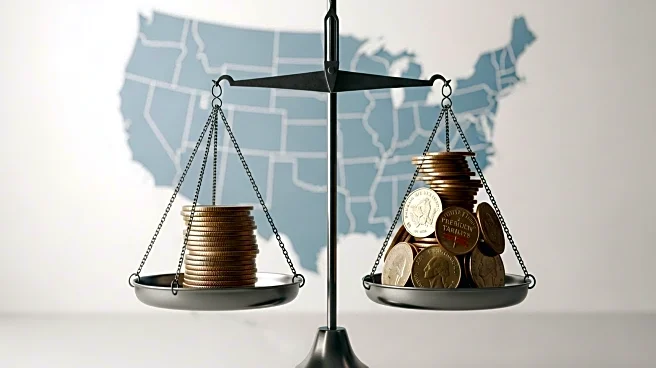What is the story about?
What's Happening?
U.S. companies and consumers are facing the financial burden of new import tariffs, contrary to President Trump's predictions that foreign countries would absorb the costs. Academic studies and business surveys indicate that U.S. firms are paying the tariffs and passing some costs onto consumers, leading to price hikes. Harvard University professor Alberto Cavallo's research shows imported goods have become 4% more expensive, while domestic products rose by 2%.
Why It's Important?
The tariffs are impacting U.S. businesses and consumers, complicating the Federal Reserve's efforts to manage inflation. As companies pass on costs to consumers, there is upward pressure on prices, which could affect consumer spending and economic growth. The situation challenges the administration's trade policy assumptions and may influence future policy decisions.
What's Next?
Companies are likely to continue diversifying supply chains and increasing domestic production to mitigate tariff impacts. The Federal Reserve may need to adjust its monetary policy in response to inflationary pressures. Stakeholders will be watching for any changes in trade policy or negotiations that could alleviate tariff burdens.
Beyond the Headlines
The tariffs highlight the complexities of global trade and the interconnectedness of economies. They raise ethical questions about protectionist policies and their real-world impacts on businesses and consumers. Long-term shifts in supply chain strategies may result from these trade tensions.















